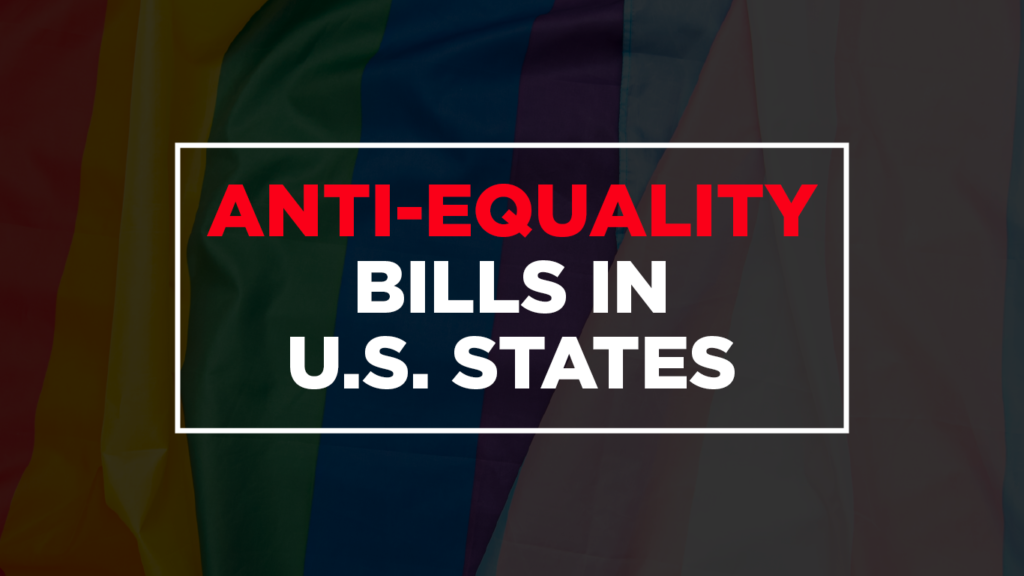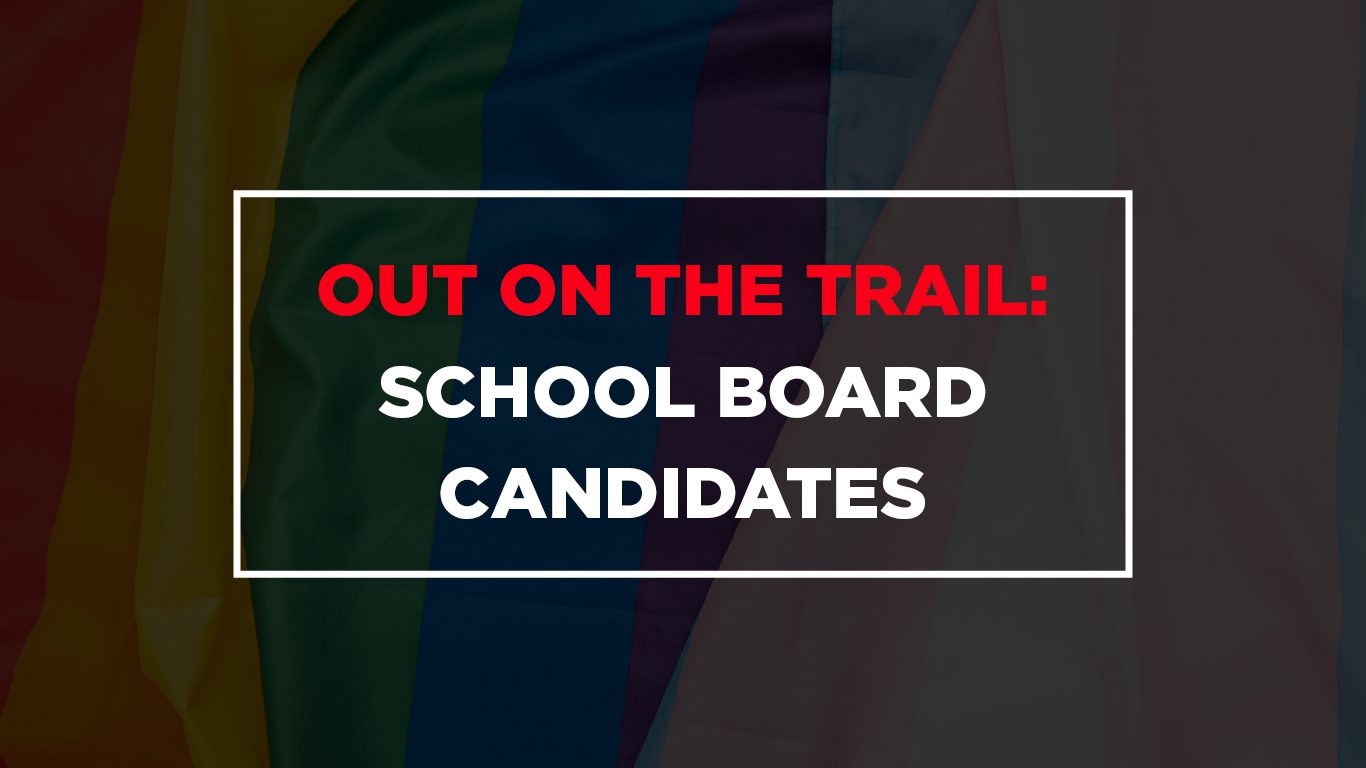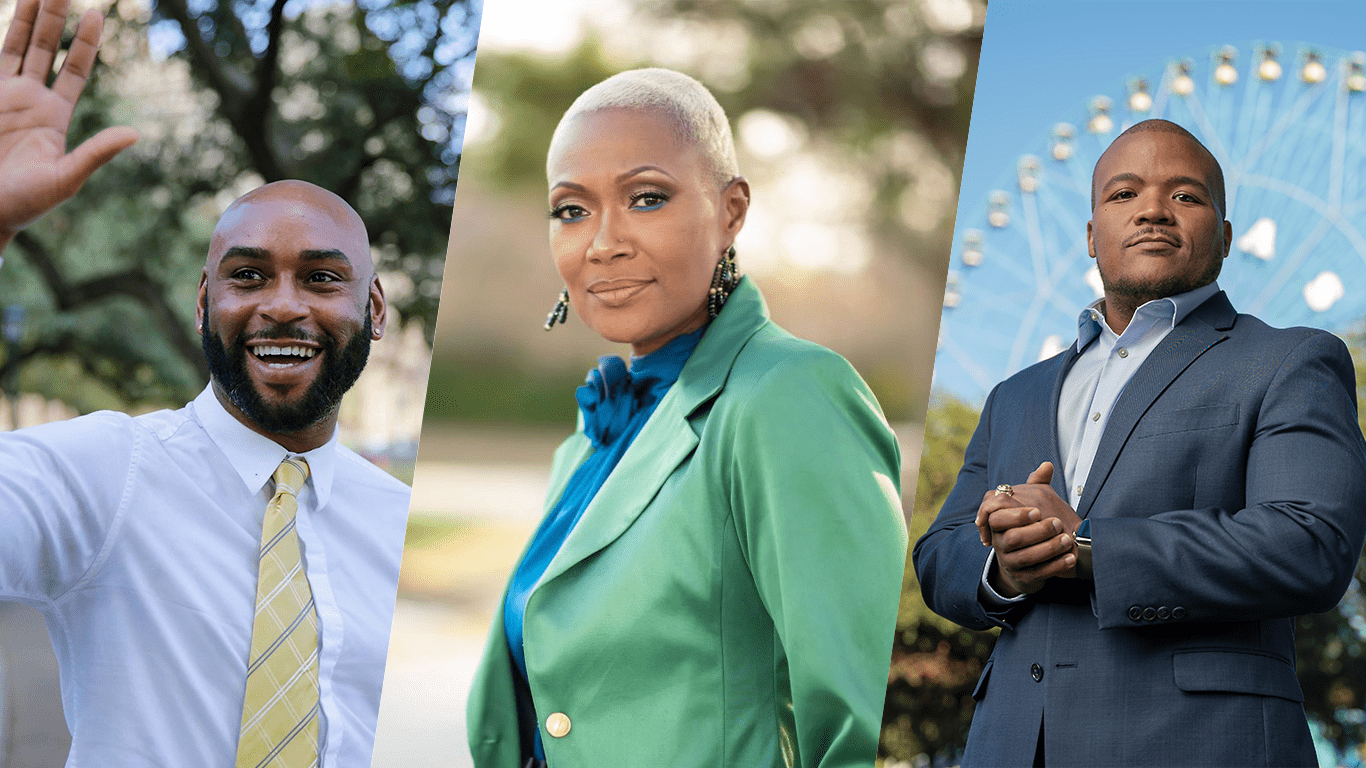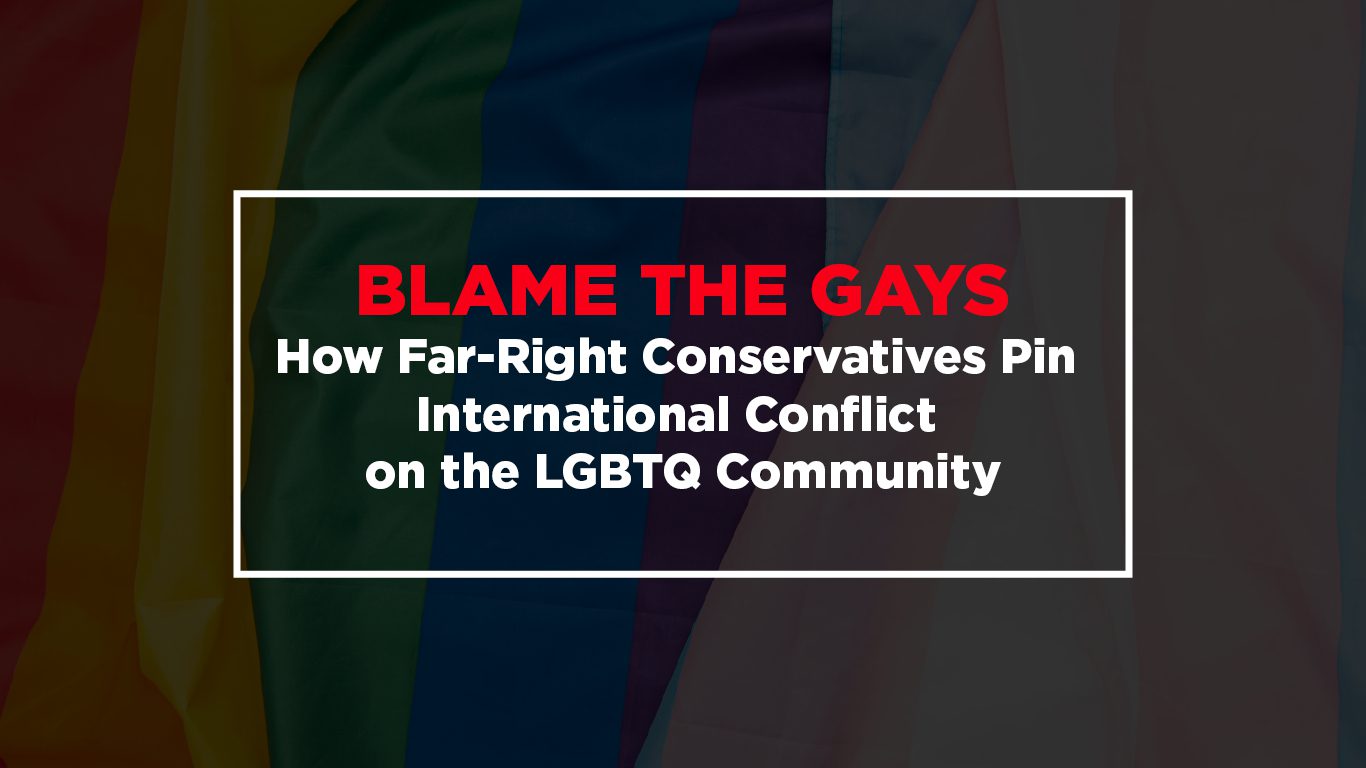
Tracking anti-LGBTQ legislation in 2022 is much like drinking out of a firehose.
Anti-equality state legislators across the country are working to rollback LGBTQ equality and strip LGBTQ people of their dignity. These efforts are exacerbated by executive and legislative officials who are attempting to increase their reelection chances while scoring cheap ‘culture war’ points against LGBTQ kids.
By restricting the rights of transgender young people pursuing gender-affirming healthcare, banning tans people in school sports and strengthening protections for people using religious claims as justification for discrimination, these anti-equality forces are perpetuating destructive policies and rhetoric to stay in power.
LGBTQ state legislators are fighting to raise awareness about these horrific bills and working overtime to ensure they don’t pass. However, only .2% of elected officials in the U.S. are LGBTQ – and in many of these states, only a handful of out LGBTQ elected officials currently serve or LGBTQ voices are part of the majority. While we are outnumbered, Victory Fund is working to change that – and send our hardworking leaders some much needed support. Learn about our state legislative candidates here.
This account of anti-LGBTQ state legislation is by no means exhaustive, and the status of bills change often. Bill information and statistics was gathered from the ACLU (learn more here). Information for this blog was gathered using data last updated 02/11/22.
Anti-Trans Bills
2021 broke previous records for the number of anti-trans bills introduced in state legislatures. This hateful trend continues this year with more legislative attacks against transgender young people and student athletes.
In just a few days the #ksleg will gavel back in. I expect to see challenges in the Ed and K-12 budget comms over DEI as well as a return of bills to allow discrimination against trans kids. Remember to look beyond the shiny object of CRT to see what’s really going on.
— Former Representative Stephanie Byers (@ByersForKansas) January 7, 2022
Limiting Healthcare
Over 25 bills across 17 states have been introduced limiting or eliminating access for gender-affirming healthcare. These bills target hormone therapy, gender affirming surgery, and attempts to punish healthcare providers who do. A bill in Arizona will punish a healthcare provider by charging them with a Class 4 felony, which can result in a fine of $150,000 and 1-3 years in prison.
Earlier this month, a group of trans activists spoke out against a similar measure which would ban gender affirming healthcare to transgender young people. The ACLU of Arizona documented the speakers and how they spoke about the harm that would be done if this bill was passed. One of the many young activists said, “To the authors of this bill – do you enjoy harming trans kids?”
Nearly a dozen anti-LGBTQ and anti-transgender bills are moving through the #AZLeg, including SB1138 — a ban on gender-affirming healthcare for transgender youth, being heard in the Senate today. @AZLGBTQ Chair @CesarChavezAZ calls out GOP hypocrisy on parental rights. #azleg pic.twitter.com/mkUgs42bgm
— Arizona House Democrats (@AZHouseDems) February 9, 2022
This group was successful in killing that specific piece of legislation, but there are still dozens more bills across the country which would have dramatic negative impacts on transgender young people.
Banning Participation in Sports
The majority of anti-trans legislation targets student athletes. Over 50 bills have been introduced across 27 states which would require students to participate in sports that align with their gender assigned at birth. Most of these bills punish school districts by pulling funding if found that they are breaking this rule.
Earlier this month, South Dakota’s governor. Senate Bill 46 also allows provisions for students who suffer “direct or indirect harm” due to a transgender student playing in a sport that matches their gender identity to pursue legal action against the school, organization or educational agency that caused the alleged harm.
It is worth noting there are no out LGBTQ people serving in the South Dakota legislature.
Mark Miller, South Dakota Gov. Kristi Noem's chief of staff, says transgender athletes participating in sports is "sort of like terrorism" during a committee hearing. pic.twitter.com/ix7HY6v6hv
— Heartland Signal (@HeartlandSignal) January 27, 2022
The Georgia state legislature is also pursuing a bill to limit high school sport participation. In response to this bill, Georgia state House Representative and candidate for Insurance Commissioner of Georgia, Matthew Wilison tweeted:
.@GovKemp, stop using Georgia school kids to stay alive in your GOP primary.
A recent @TrevorProject study showed 52% of trans and nonbinary youth seriously contemplated suicide last year. This dangerous, hateful legislation is gasoline on the fire killing our kids. #gapol https://t.co/1bLN1YdLtP
— Matthew Wilson (@mwilsonGA) February 2, 2022
Matthew was first elected to the Georgia house in 2018 and was the second openly gay man to be elected to the body. He is now running to become the first out LGBTQ person ever elected to statewide office in the South.
It is easy to see how these bills will have a chilling effect on sports participation from transgender students, regardless of whether a bill is passed in their state.
School Curriculum Restrictions
Debates about local school curriculum concerning race, LGBTQ issues and history have intensified. Proponents of limiting topics have coined the term ‘parental rights’ to disguise these dangerous pieces of legislation. If passed, these bills will alter the way students are taught important issues and limit the number of affirming LGBTQ and other pro-equality materials present in schools.
Thirty-six pieces of legislation from across the country have been introduced in state legislatures. The most prominent is Florida’s ‘Don’t Say Gay Bill.’ The bill states that teachers “may not encourage classroom discussion about sexual orientation or gender identity in primary grade levels or in a manner that is not age-appropriate or developmentally appropriate for students.”
My wife @BiancaGoolsby joined me today as I prepare to vote down the #DontSayGay bill and I am grateful to have her support.
And yes, I’m happy were gay. pic.twitter.com/CqDdfQjGkZ
— Michele Rayner (She/They/Tired) (@micheleforfl) February 22, 2022
I am disappointed that instead of turning our attention to issues that Floridians need us to focus on, we are focusing on a non-issue that is going to further make LGBTQ+ students feel isolated & stigmatized.
The “Free State of Florida” is a dangerous place to live right now. pic.twitter.com/aM5DQRUFCM
— Shevrin “Shev” Jones (@ShevrinJones) February 4, 2022
“49 mostly LGBTQ people of color, were murdered at @pulseorlando.
Their descendants, nieces, nephews and family members are children in our schools. You can't have a conversation about it without having a conversation about LGBTQ people." –@CarlosGSmith 🏳️🌈https://t.co/0H3hCE0fHJ— Carlos Guillermo Smith (@CarlosGSmith) February 15, 2022
The first time I said “I’m gay” out loud was to my 8th grade teacher. I was utterly terrified of anyone finding out, but I felt safe & protected. FL’s Don’t Say Gay bill would strip that safety from thousands of children. This bill will leave blood on their hands. RT & follow!
— Janelle Perez (@janellesofia) February 8, 2022
Other pieces of legislation mirror a Tennessee school board’s decision to ban a graphic novel depicting and explaining the Holocaust. These bills will allow for parents to appeal to their local school board if they believe that a book ‘contains content of a sexual nature.’ Books in the crosshairs are those depicting LGBTQ issues such as gender identity, expression and non-heterosexual attraction.
Religious Exemption Bills
This group of bills set up provisions for anti-equality actors to deny employment, healthcare and marriage to LGBTQ persons. A group of bills known as “Religious Freedom Restoration Acts” also allow for hateful speech and actions to be protected if it’s the expression of a “sincerely held religious belief.” Currently there are 16 bills across nine states that would expand religious exemption to protect bigoted government officials and business owners.
Anti-LGBTQ religious freedom bill passes Va. House https://t.co/M2X8RVoLIV
— Washington Blade (@WashBlade) February 17, 2022
Adoption
A slate of bills across six states would allow for adoption agencies to discriminate against LGBTQ couples when considering placement. These bills follow a ruling last year by the Supreme Court which held that adoption agencies that receive taxpayer dollars are allowed to discriminate against LGBTQ couples. This is despite statistics that show that 21 percent of LGBTQ couples have adopted children and that an additional two million LGBTQ people are interested in adoption.
The unfortunate irony is that some religious organizations will refuse to place a child with a loving LGBTQ family despite thousands of children currently in the U.S. foster care system. This argument not only perpetuates stigma against LGBTQ families and reinforces heteronormative family values but seeks to invalidate abortion access and reproductive justice.
While estimates vary, at any given time there are 424,000 children in need of placement in a home. These anti-LGBTQ institutions are choosing the perpetuation of extremist religious ideologies over the wellbeing of children.
Limiting Healthcare
Much like the bans being pursued by legislatures on gender-affirming therapies and healthcare, religious exemption bills allow for providers and insurers to flat out deny treatment to LGBTQ people.
A bill in Florida allows for healthcare providers and insurers “not to participate in or pay for any specific health care service that violates the provider’s or payer’s conscience.” This bill defines ‘conscience’ as the religious, moral or ethical beliefs of the provider or the insurer. The language of this bill would allow for a healthcare provider to simply walk out of the room and deny basic treatment to an LGBTQ person just because they are a part of the community. Additionally, it would allow providers to deny prescriptions for HIV treatment and prevention, such as PrEP, if it would conflict with their religious beliefs.
Healthcare providers take an oath to provide prevention and treatment to the ill and to treat patients as human beings. LGBTQ people are more likely to face negative health outcomes due to social factors, lack of safe spaces, increased mental health issues, higher use of alcohol and substances and a higher prevalence of HIV/AIDS. Proponents of these measures ignore the additional consequences to a population that already faces disproportionate health and wellness barriers.
Keep an eye on our website for future updates or sign up for our weekly newsletter, The Agenda, here.
If you are an out candidate running at any level of government, we want to hear from you! Learn more about our endorsement process or sign up for an endorsement here.
More information about all of Victory Fund’s endorsed candidates is available at victoryfund.org/ourcandidates. Since 1991, Victory Fund has helped thousands of openly LGBTQ candidates win local, state and federal elections.


